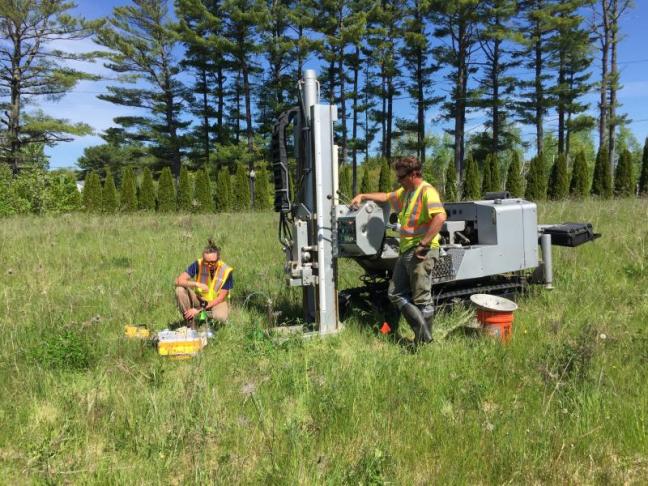No cleanup grant for Mason Station this round

Wiscasset’s Mason Station lots lost in the most recent round of Environmental Protection Agency brownfield cleanup grants, according to Town Planner Ben Averill. The applications sought grants totaling $678,000 to clean up three sites near the former power plant. The town would have made a 20 percent match, including in-kind contributions such as administrative assistance, office supplies and equipment, Averill said.
According to the EPA, Maine recipients in the grant round were Berwick ($200,000 for cleanup), The Androscoggin Valley Council of Governments ($200,000 for site assessment), Hallowell ($300,000 for site assessment) the Maine Department of Environmental Protection ($300,000 for site assessment), Bangor ($200,000 for site assessment), the Eastern Maine Development Corp. for the town of Bucksport ($160,000 for an area-wide planning grant; $125,000 for technical assistance) and Our Katahdin LLC for the town of Millinocket. ($200,000 for cleanup; $110,000 for technical assistance).
The Wiscasset grants would have been the highest in the state. Averill said it was a disappointment, but that plans were in the works to sit down with personnel at the EPA and determine what could be done to make a stronger grant for the next round in December. “That would be the first step,” he said. “Then we would have to work on constructing the grant applications so we address targets that the EPA has.”
Complicating matters, town meeting voters on June 13 rejected the planning department’s funding, so no funds will be available to pay Averill’s salary or any administrative costs to seek the funding for Mason Station lots’ cleanup or any other economic development grant after June 30.
Mason Station has some of the most desirable locations in Wiscasset for economic development, being between the Sheepscot and the Back Rivers within view of downtown, but until the remediation is complete, Averill said few buyers would be willing to purchase land. “We would have to go through a disclosure process,” he said.
That means the buyer legally has to be informed of the contamination and restrictions that might apply to the land’s use. The buyer might also make remediation a condition of the sale. Other possibilities are that brownfield developers are the only people willing to make an offer, often at pennies on the dollar of the non-brownfield value of the land, which affects its tax liability to the town.
Averill said the state’s brownfield remediation grants are not as valuable as the federal government’s grants and require a bigger local match. Aside from governmental grants, there are few other options; foundations are typically not giving out funds for brownfield remediation.
Averill said the best plan is to slow down economic development on the peninsula for now except for the current owners of land, and try to get the grant funding in the next round. He is concerned that, due to the failure on the grants, and the uncertainty about how future grants would be developed, it will probably take longer to expand the tax base on the Mason Station peninsula.
Averill said he has not heard of any plans to try somehow to replace the budget for the planning department. “I don’t know if that is something they are looking at,” he said. “I don’t even know if it will be discussed at the next Selectmen’s meeting.” In any event, Averill said he is hopeful that any work would be done by others in the office, but that would mean increasing their workload.


























